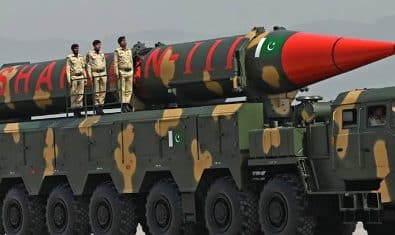The government has budgeted Rs 6.535 billion for Information and Communication Technology under the Public Sector Development Programme (PSDP) for 2018-19.
The allocation is aimed to improve capacity of IT industry by further providing infrastructure and facilities for startups and small IT businesses, increasing the quality of skills and capacity of the organizations to consistently deliver high-quality services and products, raising its standard to compete in the international arena, and accelerating the pace of e-government to facilitate citizens to avail public services.
During the last five years, ICT sector has shown promising growth in the country. Adoption of ICTs has accelerated, with the private sector playing a major role in it. However, a lot of mileage has yet to be traversed to move into the leading pack of countries.
For a high growth economy, we have to use ICTs for inclusiveness on various dimensions, e.g. social, economic and technological inclusiveness. Governments have an obligation towards its citizens, by becoming more responsive to improve citizens’ quality of life. Thus, the government will have to rely more on ICTs to deliver on the expectations of their citizens.
The key to future high growth in Pakistan is linked to regional development. In this context, CPEC is a flagship initiative that could link us not only to the yet-to-be-explored areas of Central Asia and Eastern Europe but also to act as a bridge between the Middle East, Africa and China.
However, to become an important player, a tremendous coordinated effort has to be made to transform CPEC from just a trade corridor and a physical infrastructure initiative into a much-desired knowledge corridor for this region. This can only be made possible by putting ICTs as the front-running industry in Pakistan.
Performance Review 2017-18
Pakistan’s ICT sector continues to grow (ranked 115 in 2017-18 as compared to 122 in 2016-17). However, the international arena is moving very fast thus making it harder to catch up. This is evident from the World Economic Forum’s Global Information Technology Report (GITR 2017-18) that Pakistan lags behind in most of the dimensions of the survey even in the regional context. Pakistan is lowest ranked amongst South Asian countries.
It is evident from the GITR 2017-18, out of 137 countries, the strength of Pakistan in innovation ranked 60, business sophistication ranked 81 and availability of latest technologies ranked 70. However, the main barriers in growth are market inefficiencies, especially the number of procedures to start a business ranked 125, trade tariffs ranked 135 and secondary & tertiary education enrollment ranked 118 & 115 respectively.
In telecommunication sector, cellular density increased from 70.85 percent to 72.14 percent. The 3G/4G broadband services further increased subscribers from 42.08 million to 49.46 million.
ALSO READ
3G/4G Users Reach 53.24 Million in Pakistan
In the information technology sector, National Incubation Centers (NICs) have already been established at Islamabad, Lahore and Peshawar. Currently, 40 startups are housed in these facilities. NICs at Karachi and Quetta have been awarded and will start operating soon.
Under the aegis and funding by Ignite, 33 projects worth Rs 580 million with the potential to create marketable products and services have been approved for funding. Besides, extensive consultation with stakeholders on Digital Pakistan Policy has been completed and the draft is in the process of approval by competent authorities.
This Policy will lay foundations of constructing a holistic digital ecosystem. Consultation on formulating Cyber Governance Policy has also been started. In the PSDP 2017-18, Rs3,500 million was allocated for ICT sector.
Some of the major projects that were executed in the ICT sector during 2017-18 are:
Launching of Technology Parks Development Project. Technical Assistance of Korea has been sought and loan agreement was signed too. Feasibility of the project was completed during the year and boundary wall and other allied work such as design, consultancy etc. are in progress.
Pakistan Remote Sensing Satellite (PRSS) is being developed/ manufactured in collaboration with international satellite manufacturer/ supplier. The project will enable Pakistan to gain self-reliance in satellite technology.
Enhancing IT Exports through Industry Support Programmes: IT Industry Support Programme is a multi-million rupee initiative in participation with IT industry. During the year, 12 companies were provided consultancy for CMMI and ISO 27,001/ 20,000 certifications.
ALSO READ
China to Train Pakistanis in Space Technology
Access of e-office suite software has been provided to more than fifteen (15) Ministries/Divisions and sixteen (16) attached departments, whereby more than 6,000 staff has been trained on this system. The e-office suite is now housed in NTC’s National Data Center.
Construction of Cross-Border Optical Fiber Cable for Alternative International Connectivity – so far, 520 km (out of 820km) of optical fiber cable has been laid by March 2018. The project is expected to be completed in December 2018.
Establishment of SCO Technical Training Institute (Sill) at Gilgit is in progress and is expected to be completed by December 2018.
Expansion and Up-gradation of 3G/4G services along the KKH in support of CPEC is in progress.
Replacement of GSM network in the region of Azad Jammu & Kashmir by Special Communication Organization (SCO) is going on and wilt increase the quality of communication in the region.
There is a tremendous opportunity for Pakistan as its ICT sector is now at take-off stage. IT & ITES-Business Process Outsourcing (BPO) exports are estimated to have already crossed $3 billion this year. With the right impetus, ICT sector can become the driver of change and growth in the next few years. Therefore, continuous focus is essentially required on software development, software and IT workforce export, in-country employment opportunities, e-governance for an effective service delivery, m-governance and smart monitoring technology incubators and support for entrepreneurs. This continuous focus would thus a high growth conditions in the years to come.
Launching strategic initiatives along with tax holiday and capital repatriation incentives for the private sector is expected to make Pakistan an outsourcing destination in the region by 2020, and increase IT & ITES exports to exceed US$ 5 billion.
Furthermore, as CPEC progresses, it is expected that next decade will bring in more opportunities for innovation, growth and transform the country into a regional hub of trade and commerce. Expanding ICT accessibility to remote and underdeveloped parts of the country will also help in achieving social inclusiveness, opening new vistas and source of employment in the country.
Strategic Initiatives
Following strategic initiatives are expected to transform Pakistan’s ICT landscape in the next few years:
- A network of National Incubation Centers to spur innovation and entrepreneurship in collaboration with the private sector;
- National Space Programme (NSP-2047) aims to make Pakistan self-reliant in various aspects of satellite technology for both civilian and strategic domains.
- DigiSkills Training Programme to train one million people for freelancing and specialized ICT skills;
- Technology Innovation Fund to enhance research and product development focusing on 4th Industrial Wave technologies;
- Licensing of Third Party Service Provider (TPSP) to enhance financial inclusion;
- Broadband to expand connectivity and optical fibre coverage to un-served towns/ routes throughout the country.
- Improvement in national ICT infrastructure with linkages at multiple points with the regional and international systems will make the country an important transit route for international trade and services, accelerating entrepreneurship. Automation of government processes, fin-tech, agri-tech, edu-tech, health informatics and social innovation are some of the areas which hold a potential for high growth and transforming the quality of life for the citizens.
Programs for 2018-19
The PSDP earmarked for ICT sector for 2018-19 is Rs 6,535 million. The allocation is aimed to improve capacity of our IT industry by further providing infrastructure and facilities for startups and small IT businesses, increasing the quality of skills and capacity of the organizations to consistently deliver high-quality services and products, raising its standard to compete in the international arena, and accelerating the pace of e-government to facilitate citizens to avail public services.
The major thrust in the ICT sector for 2018-19 will include:
- Development of Technology Parks to facilitate rapidly growing entrepreneurial ecosystem in the country.
- Through Ministry of IT’s project titled “Enhancing IT Exports through Industry Support Programmes” 70 more companies will be provided CMMI consultancy to attain certification of CMMI level-2, CMMI level-3, CMMI level-S and ISO 27,001/- 20,000 international standards.
- Participation in 15 major international exhibitions to generate export business.
- Under the “Prime Minister’s ICT Internship Programme”, placement of 3,000 ICT graduates in public and private sector organizations.
- Training of 3,500 professional and 500 executives from IT & ITeS BPO Industry in latest technologies in demand and business development/ international marketing respectively.
- Pakistan Space Center (PSC) aims to establish an indigenous facility for the development of satellites in accordance with the international space standards. The space center will have the capability to carry out manufacturing, testing, system level assembly, integration, launch and operations of various types of satellites.
- Pakistan Multi-Mission Satellite (PakSat-MM1) will cater to the demand of Direct To- Home (DTH), High-Throughput Services (HTS)/ Broadband Internet and Strategic SatCom. PC-II has already been approved and during the next year, PC-I will be submitted for approval and subsequent execution of the project.
- Feasibility Study of Pakistan’s 2nd Optical Remote Sensing Satellite (PRSS-02) will be completed. PRSS-02 aims to launch a sub-meter resolution remote sensing satellite.
- Feasibility and System Definition Study (FSDS) of Pakistan Navigation Satellite System (PakNav) will be carried out. PakNav will enable Pakistan to have independent satellite navigation for both civilian and strategic purposes.
- Under the aegis of CPEC, Cross-Border OFC system between China and Pakistan for international connectivity of voice and data traffic. This will enable alternative route for international internet connectivity.
- Technical Training institute will be established in Gilgit-Baltistan.
- Expanding internet and broadband services in AJ&K and Gilgit-Baltistan.
- Establishment of Quality Assurance Lab for software products in PSEB.

























